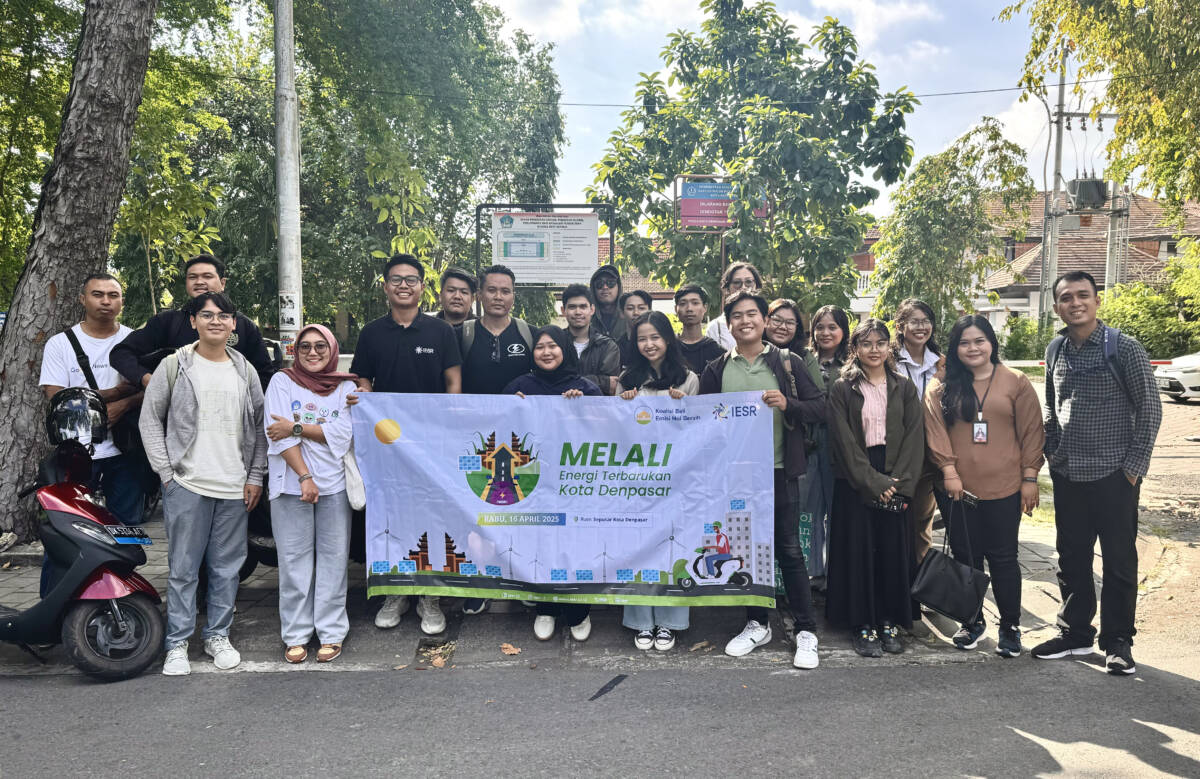Denpasar, April 16, 2025 — As the main gateway to Bali and its cultural heart, Denpasar is widely known for its vibrant traditions and tourism appeal. Now, the city is gaining attention for a different reason: its growing commitment to clean energy. As the capital of Bali Province, Denpasar is positioning itself at the forefront of sustainable urban development through the adoption of solar power solutions.
A significant step in this direction has been the installation of solar panels across various parts of the city, particularly on public buildings and street lighting infrastructure. These initiatives aim to reduce carbon emissions and reflect the city’s broader commitment to responsible resource management in line with national climate goals.
Ida Bagus Komang Suseno, Electricity Analyst at the Bali Provincial Office of Manpower and Energy and Mineral Resources, expressed optimism about the future of solar energy adoption in Denpasar.
“Positive change must be shared and spread and there’s no better way than through good examples, such as rooftop solar,” said Gus Mang during the Melali Energi Terbarukan Kota Denpasar (Exploring Renewable Energy in Denpasar) event held on Wednesday (16/04/2025), organized by the Institute for Essential Services Reform (IESR).
Another local success story comes from Subak Prapat Beris in Sanur, where solar power is directly supporting agricultural needs. Gusi Wayan Danu, Secretary of Subak Intaran and operator of the local solar power system, shared its impact with visitors
“Solar PV is used to power irrigation pumps. This technology helps farmers reduce their operational costs and dependence on fossil-fuel-based electricity,” he explained.
Echoing this sentiment, Erly Yeniska, Community Development Officer at PT Pertamina Patra Niaga, emphasized the value of the SIUMA initiative (Suplai Energi Manajemen Irigasi Uma Palak, or Uma Palak Energy Management for Irrigation Supply).
“The implementation of rooftop solar under the energy-independent village program not only advances solar adoption in Bali but also empowers local farmers to sustain their agricultural practices,” she said.
At Uma Palak in Subak Sembung, participants observed a hybrid system combining solar energy and micro-hydro power (PLTMH), used to support irrigation and boost local economic activities. The SIUMA initiative, a collaboration between Peguyangan Village and PT Pertamina Patra Niaga’s CSR program, was officially inaugurated by Denpasar Mayor I Gusti Ngurah Jaya Negara, SE, on September 23, 2023.
“Energy transition is not just about technology it’s about building awareness and community involvement,” said Laili Asdiyan Salsabila, Program Staff for IESR’s Bali Net Zero Emission initiative.
She noted that “melali”, a Balinese word meaning “to go for a walk,” serves as a unique and locally rooted approach to making the clean energy conversation more accessible and relatable to everyday life.
The Melali Energi Terbarukan event took participants on an electric motorbike tour to various clean energy sites, including rooftop solar installations at Intaran Village Market and Subak Intaran, the Sekar Tunjung Waste Management Facility (TPS3R), the Provincial Office of Manpower and ESDM, and the Uma Palak ecotourism site in Peguyangan.
The use of electric motorcycles throughout the journey showcased low-emission mobility solutions, further reinforcing the link between clean energy and sustainable lifestyles. At each site, participants engaged directly with local facility managers, gaining technical insights into the role of clean technologies in cutting carbon emissions and enhancing local energy resilience.
Through this hands-on and participatory approach, IESR underscores that the energy transition is a collective movement. It is not solely the domain of government policy or industry investment but also a journey that can be catalyzed by small, community-driven actions. Aligned with the spirit of melali, the path toward a cleaner, more sustainable future begins with real experiences and inclusive engagement.

